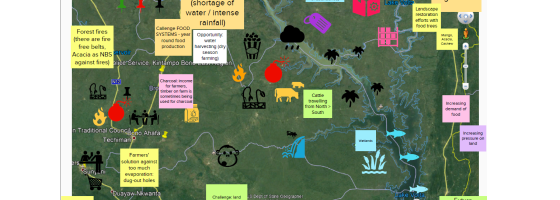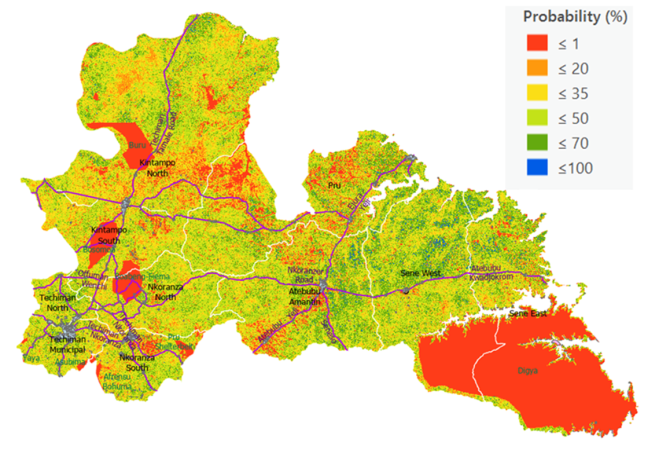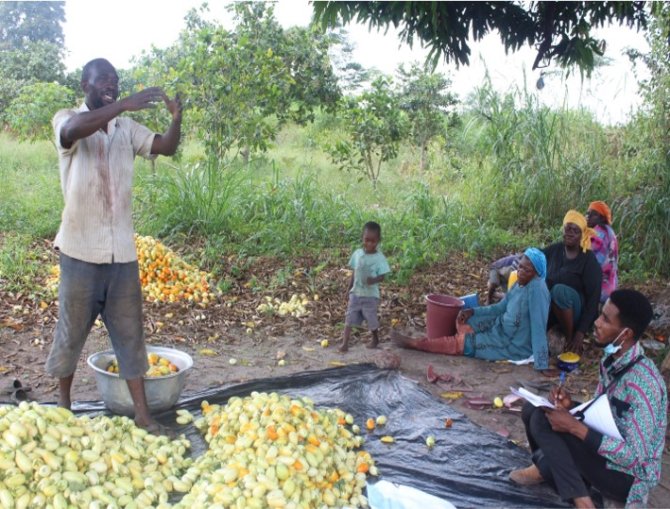Blog post
Participatory modelling without stakeholders
Researcher Confidence Duku works on food security in relation to climate change in the Bono East Region. Due to Corona, his computer screen in the Netherlands is the closest he can get to Ghana. Nevertheless, the research team managed to struggle through rather well. And there is more to come.

What is the Ghana case about?
Dr Confidence Duku and his colleagues are looking at nature-based solutions for adaptation to climate change, that are also circular. Confidence promptly acknowledges that there are a lot of buzz-words in that sentence. In the Bono East Region, it boils down to rainwater harvesting for irrigation and forest landscape restoration, while growing food.
How did Corona effect this case?
This research is purely depending on input from stakeholders, since we use a participatory modelling approach. Due to travel restrictions, it was too difficult to reach farmers, local government personnel and agricultural institution officers, for instance. Out of necessity, we developed online sessions. We invited employees of research institutes in Ghana, lecturers and other partners who have good internet connection and indigenous knowledge of the actual stakeholders. Since direct input from stakeholders about the factors that underpin suitability of rainwater harvesting in their area was missing, we needed to rely more on literature studies as well. A literature review has always been part of the plan, but it got a more important role now. With this, I produced a preliminary suitability map. It was preliminary, because we always hoped that we would go to the field later on. But that didn’t happen.

Does that mean a delay for the case study?
Yes, a little bit. The case study should bring together a participatory research approach, a landscape approach and a GIS approach. Especially the participatory approach - one of the selling points of this case study – has been nearly impossible so far. So for now, as a placeholder, we had to use other approaches that did not require direct stakeholders.
Is it an advantage that you are Ghanaian?
Actually, that is a coincidence. I got a role in this project because I am an analyst with the right expertise for this project. But I do see the advantage. Africa is a different world from here. Some of the decision making is easier for me. When we find information in literature about other areas or countries, I can understand whether this is related to Ghana or that it is farfetched.
What’s next?
We plan to go to the field next year. Hopefully, we can finally have a proper interaction with direct stakeholders then.
